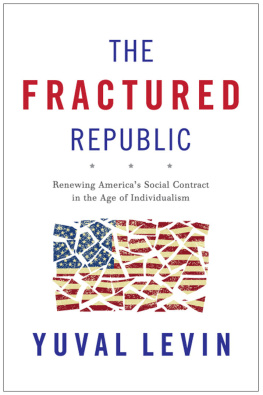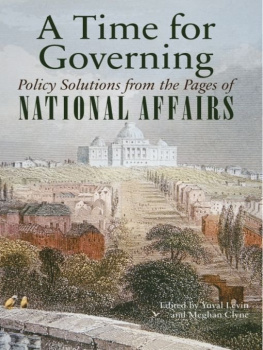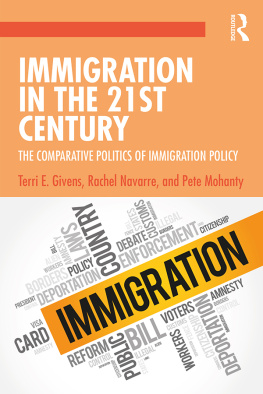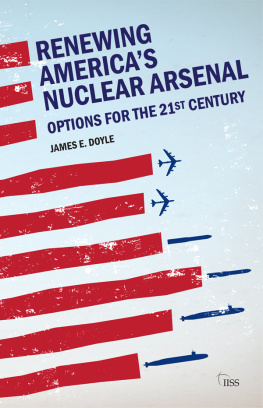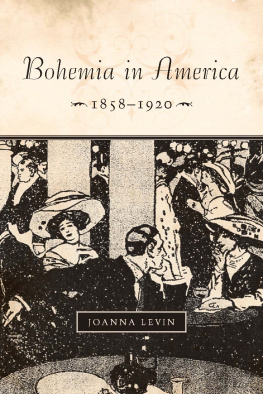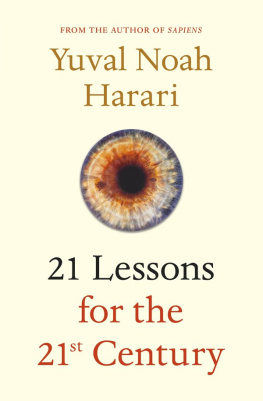

Copyright 2016 by Yuval Levin
Published by Basic Books,
A Member of the Perseus Books Group
All rights reserved. Printed in the United States of America. No part of this book may be reproduced in any manner whatsoever without written permission except in the case of brief quotations embodied in critical articles and reviews. For information, address Basic Books, 250 W. 57th St, 15th floor, New York, NY 10107.
Books published by Basic Books are available at special discounts for bulk purchases in the United States by corporations, institutions, and other organizations. For more information, please contact the Special Markets Department at the Perseus Books Group, 2300 Chestnut Street, Suite 200, Philadelphia, PA 19103, or call (800) 8104145, ext. 5000, or e-mail .
Library of Congress Cataloging-in-Publication Data
Names: Levin, Yuval, author.
Title: The fractured Republic: renewing Americas social contract in the age of individualism: how America can overcome nostalgia, revive civil society, and thrive in the twenty-first century / Yuval Levin.
Description: New York: Basic Books, [2016] | Includes bibliographical references and index.
Identifiers: LCCN 2016002304 | ISBN 9780465098606 (electronic)
Subjects: LCSH: Civil societyUnited States. | United StatesPolitics and government21st century. | United StatesSocial conditions21st century. | United StatesEconomic conditions21st century. | United StatesCivilization21st century.
Classification: LCC E893 .L48 2016 | DDC 306.20973--dc23 LC record available at http://lccn.loc.gov/2016002304
10 9 8 7 6 5 4 3 2 1
For Cecelia, with love
Christian nations in our day appear to me to offer a frightening spectacle: The movement that carries them along is already strong enough that it cannot be suspended, and it is not yet rapid enough to despair of directing it. Their fate is in their hands, but soon it will escape them. To instruct democracy, if possible to reanimate its beliefs, to purify its mores, to moderate its movements, to substitute little by little an understanding of affairs for its inexperience, and knowledge of its true interests for its blind instincts; to adapt its government to time and place; to modify it according to circumstances and mensuch is the first duty imposed on those who would guide society in our day. A new political science is needed for a world altogether new. But that is what we hardly dream of: Placed in the middle of a rapid river, we obstinately fix our eyes on some debris we still perceive on the bank, while the current carries us away and takes us backward toward the abyss.
ALEXIS DE TOCQUEVILLE,
Democracy in America
CONTENTS
LIFE IN AMERICA IS ALWAYS getting better and worse at the same time. Progress comes at a cost, even if it is often worth that cost. Misery beckons relief, so that our virtues often turn up where our vices have been. Decay and decadence almost always trail behind success, while renewal chases ruin. And in a vast society like ours, all of this is always happening at once. That means there are no simple stories to tell about the state of our country, and that upbeat and downcast social analyses are often just partial descriptions of one complex whole.
That complexity is a constant annoyance for people in my line of work. I am the editor of a journal of public affairs and a scholar at a think tank in Washington, DC, where I write about policy and politics. I am therefore in the business of trying to understand our public problems and proposing solutions. That would be easier to do if our public life were, as we all sometimes imagine it is, the scene of simple struggles between the righteous and the wrong, and if the recipe for flourishing were obvious and within our easy reach if only our political opponents were cleared away.
American politics is frequently paralyzed by the illusion that things might be that easy. But in our time, in particular, our politics is overwhelmed by an unusually intense and often debilitating frustration that is rooted in a form of that illusion, but runs deeper. Liberals and conservatives both frequently insist not only that the path to the America of their (somewhat different) dreams is easy to see, but also that our country was once on that very path and has been thrown off course by the foolishness or wickedness of those on the other side of the aisle. Liberals look back to the postwar golden age of midcentury America, which they believe embodied the formula for cultural liberalization amid economic security and progress until some market fanatics threw it all away. Conservatives look fondly to the late-century boom of the Reagan era, which they say rescued the country from economic malaise while recapturing some of the magic of the confident, united America of that earlier midcentury golden age, but was abandoned by misguided statists.
Each side wants desperately to recover its lost ideal, believes the bulk of the country does, too, and is endlessly frustrated by the political resistance that holds it back. The broader public, meanwhile, finds in the resulting political debates little evidence of real engagement with contemporary problems and few attractive solutions. In the absence of relief from their own resulting frustration, a growing number of voters opt for leaders who simply embody or articulate that frustration.
This book begins from that widespread frustration, which I take to be a function in large part of a failure of diagnosis, and so a failure of self-understanding. American life in the decades since the end of World War II has not been, on the whole, a story of finding the right course and then falling away from it. We have actually held fairly steadily to something like a single complex but coherent trajectory, which has turned out to bring us progress at a cost.
In our cultural, economic, political, and social life, this has been a trajectory of increasing individualism, diversity, dynamism, and liberalization. And it has come at the cost of dwindling solidarity, cohesion, stability, authority, and social order.
The America that emerged from World War II and the Great Depression was exceptionally unified and cohesive, and possessed of an unusual confidence in large institutions. But almost immediately after the war, it began a long process of unwinding and fragmenting: over the subsequent decades, the culture liberalized, the economy was deregulated, and an exceptional midcentury elite consensus in politics gave way to renewed divisions. In time, this fracturing of consensus grew from diffusion into polarizationof political views, of incomes, of family patterns and ways of life. There was no sharp break in this process, and no change of direction midway. We have grown less conformist but more fragmented; more diverse but less unified; more dynamic but less secure.
Both progressives and conservatives are conflicted about this combination of gains and losses. Progressives tend to treasure the social liberation, cultural diversification, and expressive individualism of our time, but they lament the economic dislocation, the loss of social solidarity, and the rise in inequality and fragmentationand their consequences for the most vulnerable Americans, in particular. Conservatives tend to celebrate the economic liberalization, dynamism, and prosperity, but they lament the social instability, moral disorder, cultural breakdown, and weakening of fundamental institutions and traditionsand their consequences for the most vulnerable Americans, in particular.
Next page
